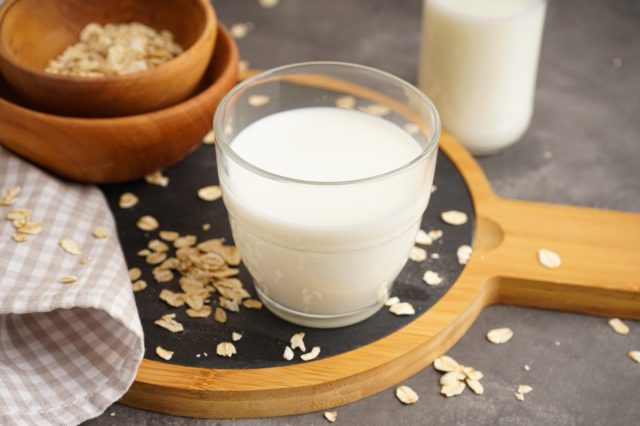What you consume not only impacts your overall health, but also your skin. Some foods have the potential to trigger inflammation and disrupt hormones, which can lead to skin issues such as acne. While genetics and lifestyle choices play a role in acne development, the consumption of certain foods can exacerbate the condition. To prevent severe breakouts and maintain clear skin, dermatologists highlighted seven foods that are best avoided.
Oat Milk
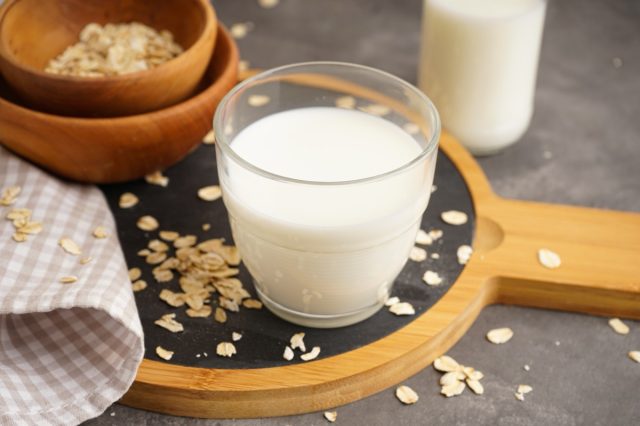
While oat milk is a popular dairy substitute, it can cause acne for some.
According to Karan Lal DO MS FAAD, Director of pediatric dermatology and cosmetic surgery in Scottsdale, Arizona, oat milk can increase acne risk due to its high carbohydrate content. Lal emphasizes, “I have observed cases where oat milk has worsened acne.”
Whey Protein
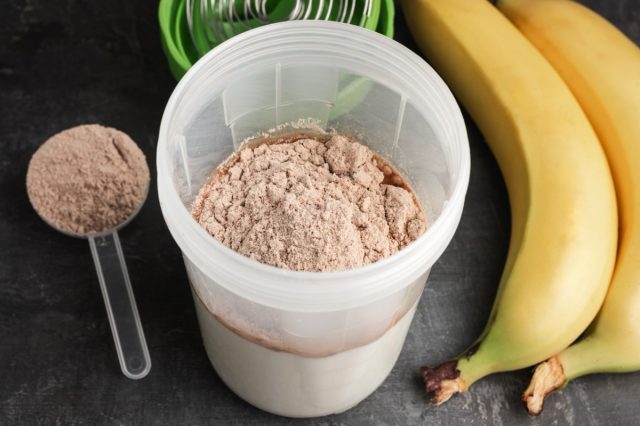
Whey protein is often found in smoothies and shakes for an extra boost of protein, but it can lead to skin issues.
Emily Wood, a board-certified dermatologist from Marble Falls, TX, at Westlake Dermatology, cautions against consuming highly concentrated whey protein, equating it to consuming an excessive amount of milk. Wood warns about the potential negative impacts of excessive whey protein consumption on the skin.
She explains, “The reasoning behind this is linked to whey proteins’ effect on insulin. Whey protein increases Insulin like growth factor 1 (IGF-1) which increases androgens, estrogen, and keratinocyte proliferation.”
Dr. Wood adds, “Androgens are hormones such as testosterone which increases acne. Keratinocyte proliferation causes increased comedone formation.”
High Glycemic Index Foods
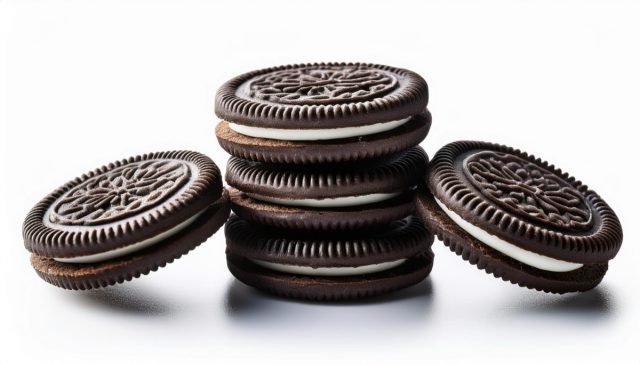
High glycemic index foods include snacks like cookies, sugary treats, soda, white rice, white bread and candy and have been linked to acne.
“These are foods that increase blood glucose which increases inflammation and oil production in the skin,” Dr. Wood says.
Dr. Lal agrees and explains, “Sugar in general drives inflammation and can be food for acne causing bacteria and yeast! Try to stay away from refined sugars and opt for healthier sources like fruits.”
Supplements Containing Vitamin B6 or B12
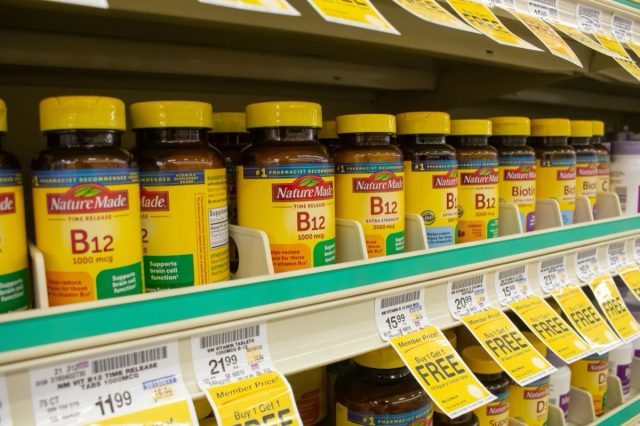
Taking supplements with Vitamin B6 or B12 is a common practice for many, but Dr. Wood says it can worsen acne.
She explains, “One theory of why this may be the case is that B vitamins alter the skin microbiome, specifically with regards to altering the behavior of Propionibacterium acnes (P.acnes). P. Acnes is one of the key players in acne.”
Excessive Intake of Iodine
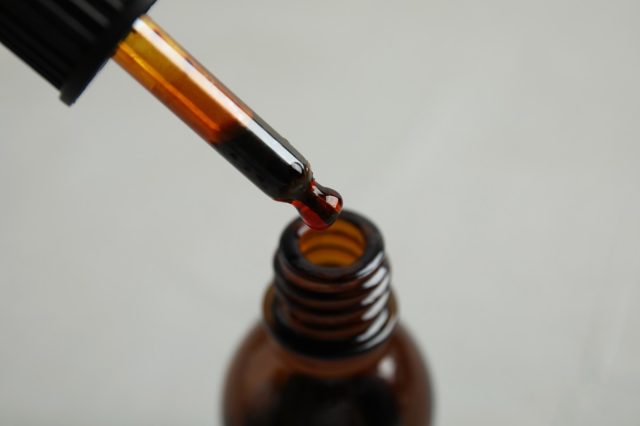
According to Dr. Wood, “excessive intake of iodine can worsen acne.”
She explains, “Iodine in high amounts is commonly found in seaweed and kelp supplements. Seaweed and kelp supplements can also be found in certain smoothies claiming to improve skin health.”
Dr. Wood adds, “Be careful what you are drinking, it could be making your acne worse. It is somewhat unknown why iodine worsens acne, but it seems to worsen inflammation and increase oil production.”
Skim Milk
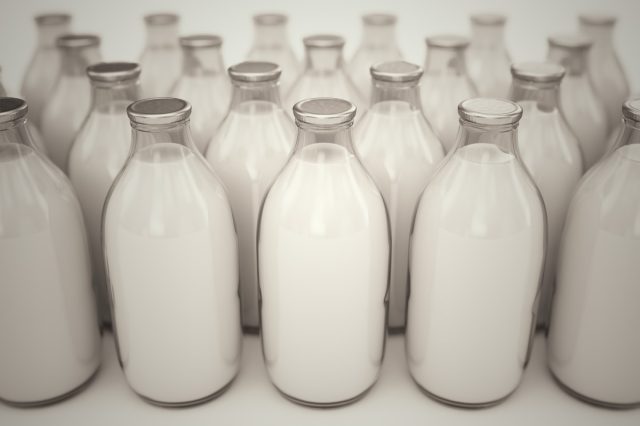
While skim milk is a healthier choice if you’re watching your fat intake, it could cause acne.
There are observational studies that have shown increased acne in teens who drink skim milk. There are a couple of theories as to why this occurs.
-Hormones (such as androgens and insulin growth factor-1) are in milk and contribute to hormonal fluctuations in the body.
-Certain proteins in skim milk may contribute to worsening acne.
-Or Skim milk raises insulin levels more than whole milk.
-Another hypothesis links the presence of iodine in milk to worsening acne.
Dr. Lal adds, “Studies have shown that skim milk is associated with acne and we think it’s because of the higher sugar content! Instead opt for almond milk or whole milk.”
Soy Based Protein
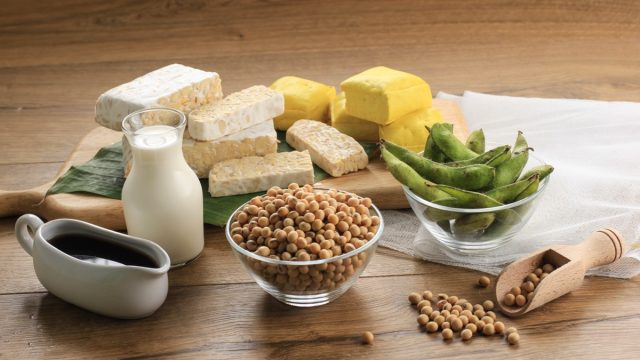
For vegans, vegetarians and others who include soy based protein in their diet, Dr. Lal says it can cause acne.
“In some patients excessive soy intake can precipitate acne,” he says. “You can eat soy just eat it in moderation.”
